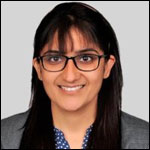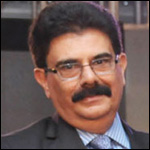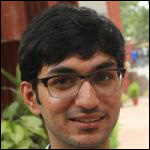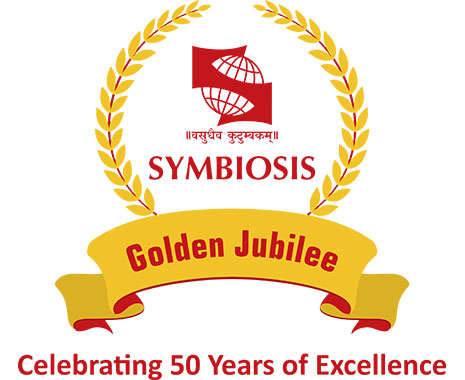Certificate Course on "Certificate Course on Overview of U.S. Legal System ": In Collaboration with Penn State Law, Pennsylvania State University, USA | January 31, 2022 – February 19, 2022

INTRODUCTION
Symbiosis Law School, NOIDA in collaboration with Penn State Law, Pennsylvania State University, USA is offering Certificate Course on Overview of U.S. Legal System (Value Added Course) from January 31, 2022 – February 19, 2022, in 'Online Mode' in Microsoft Teams.
BACKGROUND
The drafters of the U.S. Constitution blueprinted three branches of government, established the boundaries of federal law, and set out how national and state governments would share power—and what would happen if interests conflicted. It is unlikely the 1787 Constitutional Convention could have anticipated how slavery would be regulated (and then undone), several world wars, abortion, gun regulations, drones, welfare benefits, physician-assisted suicide—and perhaps even the stature of the U.S. Supreme Court and the finality of its decisions. The drafters probably didn’t foresee how U.S. law would impact jurisdictions outside America, or how federal law would be impacted by legal innovations and trends outside the new country, including India.
Prelude
This intensive ten-day course is discussion-based. In exchange for extensive outside reading, your instructor expects 100 percent attendance and active participation in class and group activities. We are all in this together! Our collective success will be determined by attendees' curiosity and participation in larger and smaller group discussions. The key to learning and success in the said Certificate Course is ’Ask questions’, ‘Challenge assumptions’, ‘Express your opinions thoughtfully—and please respect opposing viewpoints’.
It is pertinent to note that the course is limited to 75 students only (to be selected through application process from Second-Third-Fourth-Fifth Year Learners | AY 2022-23). It requires 100 percent attendance and involves evaluation including 50% group presentation and 50% take home exam. One who fulfils these conditions (attendance and evaluation) will only be entitled to get a certificate of completion.
COURSE LEARNING OBJECTIVES
- To become acquainted with the U.S. Constitution by studying a few landmark U.S. Supreme Court decisions; and explore how culture affects law—and vice versa
- To compare the U.S. legal system and U.S. law trends with other jurisdictions, and especially India’s
- To explore how the U.S. legal system impacts America’s relations with other countries
- To introduce students to the Issue – Rule – Analysis – Conclusion (IRAC) case analysis method
- To inspire students to consider study abroad options
ABOUT THE RESOURCE PERSON
Professor Stephen G. Barnes | Assistant Dean of Graduate and International Programs, Penn State Law, the Pennsylvania State University, USA
Professor Stephen G. Barnes, Assistant Dean of Graduate and International Programs, Penn State Law, the Pennsylvania State University, USA.
Mr. Steve oversees LL.M. ,S.J.D., and Pre-LL.M. admissions, international student services, certificate programs, student exchanges, and the visiting scholar program at Penn State Law. Before his appointment, Mr Steve lived for 8 years in China where he is an honorary law professor at the China University of Political Science and Law in Beijing and also a visiting professor at other Chinese law schools. Steve is proficient in French, Chinese, and Swedish, and is energized by the rich diversity talented international students bring to Penn State Law.
On Steve's "perfect day" you'll see him on his stand-up paddleboard on an ocean or nearby lake; and, making "s'mores" over a campfire with family and students.
Mr Steve’s academic qualifications include J.D., University of Oregon; M.B.A., The George Washington University; B.A., Brigham Young University.

DATE AND TIMINGS
January 31, 2022 – February 19, 2022 | 03:30 PM – 05:30 PM | Online @Microsoft Teams
CONTACT PERSON
Dr. Meenakshi Kaul,
Assistant Professor &
Head – HR & Placement, Training and Placement Cell,
Symbiosis Law School, NOIDA
Ms. Meera Mathews,
Assistant Professor &
Head-Training and Placement Cell,
Symbiosis Law School, NOIDA
Email: hr@symlaw.edu.in | training@symlaw.edu.in
Certificate Course on "Overview of U.S. Legal System": In Collaboration with Penn State Law, Pennsylvania State University, USA - August 31 - September 12, 2020

INTRODUCTION
Penn State Law, Pennsylvania State University, USA in collaboration with Symbiosis Law School, NOIDA is offering Certificate Course on Overview of U.S. Legal System from August 31 – September 12, 2020.
This intensive Ten-Day Course is discussion-based. In exchange for extensive outside reading, the instructor expects 100 percent attendance and active participation in class and group activities.
BACKGROUND
The drafters of the U.S. Constitution blueprinted three branches of government, established the boundaries of federal law, and set out how national and state government would share power—and what would happen if interests conflicted. It is unlikely the 1787 Constitutional Convention could have anticipated how slavery would be regulated (and then undone), several world wars, abortion, gun regulations, drones, welfare benefits, physician-assisted suicide—and perhaps even the stature of the U.S. Supreme Court and the finality of its decisions. The drafters probably didn’t foresee how U.S. law would impact jurisdictions outside America, or how federal law would be impacted by legal innovations and trends outside the new country, including India.
COURSE LEARNING OBJECTIVES
- To become acquainted with the U.S. Constitution by studying a few landmark U.S. Supreme Court decisions; and explore how culture affects law—and vice versa
- To compare the U.S. legal system and U.S. law trends with other jurisdictions, and especially India’s
- To explore how the U.S. legal system impacts America’s relations with other countries
- To introduce students to the Issue – Rule – Analysis – Conclusion (IRAC) case analysis method
- To inspire students to consider study abroad options
TOPICS (TO BE UPDATED)
| Sr. No. | Topic | Sub-Topics |
|---|---|---|
| 1 | Introduction And Expectations | |
| Let’s Become Acquainted | ||
| The U.S. Constitutional Framework | Historical Background | |
| The Legislative Branch: Hierarchy of legislation; The U.S. Congress; State Legislatures. | ||
| The Executive Branch | ||
| The Judicial system: Dual System Of Courts (Federal And State); Federal Jurisdiction; Law Applied In The Federal Courts. | ||
| Legal Analysis: How To Study A Case Using Issue, Rule, Analysis, Conclusion (IRAC framework) | Heart of Atlanta Motel v. United States, 379 U.S. 241 (1964) | |
| 2 | Freedom of Religion and Freedom of Speech Under the First Amendment | Yoder v. Wisconsin, 406 U.S. 205 (1972) |
| Edwards v. Aguillard, 482 U.S. 578 (1987) | ||
| 3 | Right to Counsel under the U.S. Constitution | Gideon v. Wainwright, 372 U.S. 335 (1963) |
| Miranda v. Arizona, 384 U.S. 436 (1966) | ||
| 4 | U.S. Law and Culture Discussion | |
| 5 | “How High is High? Impeachment Under the U.S. Constitution” | |
| 6 | Overview of U.S. Administrative Law And Its Applications In Environmental Law | |
| 7 | Capital Punishment | |
| 8 | How to Draft a CV, Cover Letter, Personal Statement and to Prepare for Interview Questions | Harvard Resumes and Cover Letters Handout |
| 9 | Group Presentations | |
| 10 | Final Examination |
ABOUT THE RESOURCE PERSON
Professor Stephen G. Barnes, Assistant Dean of Graduate and International Programs, Penn State Law, the Pennsylvania State University, USA
Mr. Stephen G. Barnes is Assistant Dean of Graduate and International Programs at the Pennsylvania State University.
Before his appointment, Mr. Steve lived for 8 years in China where he was a visiting law professor at the China University of Political Science and Law in Beijing and also served as Penn State Law China Programs Director.
Mr. Steve is proficient in French, Chinese, and Swedish, and is energized by the cultural diversity that talented international students bring to Penn State Law.
Mr. Steve’s educational qualifications include J.D., University of Oregon; M.B.A., The George Washington University; & B.A., Brigham Young University.

DATE AND TIMINGS
August 31 – September 12, 2020 | 03:30 PM – 05:30 PM
CONTACT PERSON
Dr. Meenakshi Kaul,
Assistant Professor &
Head – HR & Placement, Training and Placement Cell,
Symbiosis Law School, NOIDA
Ms. Meera Mathews,
Assistant Professor &
Head – Administration, Research & Publication Cell,
Symbiosis Law School, NOIDA
Email: hr@symlaw.edu.in | research@symlaw.edu.in
Certificate Course on Energy Laws in India: April 28 - June 02, 2020

INTRODUCTION
We are delighted to inform that Training and Placement Cell in collaboration with Research and Publication Cell, Symbiosis Law School, NOIDA would offer a ‘Certificate Course on Energy Laws in India’.
The Course will be conducted via online mode from April 28 – June 02, 2020.
WHY ENERGY LAW?
Energy is the centre of our living. Imagine a world with power and you would know what I am talking about. I would encourage young attorneys to look very closely at the sector and you would know it is one of the most dynamic sectors out there. As one can conceive from the new and what is going on domestically, there is a lot of activity both, domestically and internationally in the Energy Sector and for aspiring attorneys, it’s just out there for taking. There is solar energy, wind energy, natural gas, coal, petroleum, oil and so many other facets of energy. As a lawyer, working in Energy Law, I can say that the understanding of this sector helps to become part of various top-notch transactions and at the same become part of individuals daily living issues related to energy. The industry in Energy is built on the thresholds of innovation and technology. As of today, there is a defined regime and what the sector is working towards is looking at more refined and better ways of dealing with issues. In other words, in the near future, there is no getting away from Energy Laws! The good news is that there are lot of entry points for attorneys to enter to sector as in- house counsel, government affairs, project finance, compliances, litigation, arbitrations, lobbying and policy making.
WHAT IS ENERGY LAW?
Breaking down energy laws into nuts and bolts would suggest that energy law encompasses in its ambit sub-sets of other laws, such as Contracts, Administrative Laws, Property Laws, Laws governing exploitation –exploration- refining and delivery of final products etc. It will be very difficult to put a label on a code and suggest that “here, this is energy law”, as it is a relationship between various facets of laws. It is a complex mix of laws governing production and distribution of energy. The only certain this about energy law is that it changes with time, policy and innovations / technology. Energy Laws develop with opening of new markets and economics, making it a sophisticated flied of law. It is not what it used to be 20 years ago. No matter which country you pick or discuss, no matter what the socio-economic condition of that country be, a nation cannot do without energy laws. Energy Laws helps you work on critical issues, hands-on. Also, in order to understand energy laws, one needs to understand the sector and how the different pieces in different sectors interact and then it becomes easier to understand how risk would be allocated between various stakeholders.
More Energy to you!
OBJECTIVE OF THE CERTIFICATE COURSE
The course in Energy Law would help the students understand the laws and regulations concerning the electricity or the power sector in India. At the same time the course is aimed at developing a functional understanding of theories relating to the legality and economics of Energy / Electricity.
The course would focus on legislation that govern generation, transmission, distribution, sale and purchase of electricity in India. This course introduces students to a related area of law as well, an area that monitors, regulates, defines and postulates the governance of renewable and non-renewable resources such as natural gas, oil, petroleum, electricity which resources are mandatory for generation of electricity, including thermal, solar, hydel, wind etc. The course is also targeted at giving the students a basic familiarity with energy related transactions (power purchase agreements, power sale agreements, tariff order etc.).
The course imparts knowledge relating to the role, powers and functions of the regulators, courts, tribunals that have been and continue to be instrumental in developing and defining the energy sector (such as State Electricity Commissions, Appellate Tribunal for Electricity, Petroleum and Natural Gas Regulatory Board etc.). The sector is novel, growing and is niche in many ways than one. Energy Laws is contained in central legislation and many regulations that various regulations.
The study of Energy Laws introduces a student to processes; statutory, administrative and judicial in the interpretation of the laws and regulations governing the sector. This course is a crosscutting one, relevant to the understanding of laws that govern an essential commodity such as electricity. The course also holds relevance for legal practice by students in future as it aims to prepare a student to take on a niche area of practice in big ticket law firms, companies and PSU’s engaged in the sector.
The course is designed in a manner that enables the students and professionals to grasp the intricate functioning of the legal framework and contractual requirements of the Energy sector. The teaching methodology includes lectures, seminars, online training, research and visits to power plant sites (if necessary). The students will also be given an exposure in terms of latest regulations, judgements and policies pertinent to the Energy Sector, which gives them a deeper insight into the functioning of the energy sector in India.
COURSE TIMETABLE AND SCHEME
| DATE | HOURS | CHAPTERS |
|---|---|---|
| April 28, 2020 | 1 Hour |
Welcome to the course. Induction and Introduction to the Course |
| April 29, 2020 & April 30, 2020 | 3 Hours |
Introduction to Energy Laws in India. The existing framework of laws and institutional framework governing energy law. Why Regulate Energy? [Note: Brief introduction to laws relating to electricity, petroleum, oil, coal, natural gas and nuclear power in India.] |
|
May 01, 2020 and May 02, 2020 |
3 Hours |
Getting around the Technical Terms. Understanding Generation, Transmission, Distribution and Trading of Electricity and Broad overview of governing laws. In this session, the students are also introduced to technical terms and also to the Energy Sector / Industry in India and their inter-relation. |
|
May 05, 2020 and May 08, 2020 |
6 Hours Industry Experts – External Speakers) |
The Electricity Act and the Regulators. · What is Electricity: Status in Physics and Law? · Historical Background of the Electricity Sector in India · Introduction to the Electricity Act, 2003 · Power of regulators under the Electricity Act, 2003 · Setting up of Regulatory Bodies: Judicial Status and Role, functions, · Understanding the Competitive Bidding Process and sale / purchase of powers [Note: A small exercise is planned for students here in order to make them understand the role of various stakeholders in the sector and how the Electricity Act governs their behavior?] |
|
May 12, 2020 and May 15, 2020 |
4 Hours Industry Experts- External Speakers |
Standard Agreements and the Energy Sector: Power Purchase Agreement and Power Sale Agreement |
|
May 17, 2020 |
3 Hours | Tariff – the price of Electricity. How is cost of electricity calculated? |
| May 20, 2020 | 2 Hours | Role of the Supreme Court of India in defining the Energy Sector – flirting with landmark decisions and discussing the greys. |
|
May 22, 2020 And May 23, 2020 |
4Hours Industry Experts – External Speakers |
The Petroleum and Natural Gas Regulatory Board Act (PNGRB Act) · Natural Gas – its importance and need in India · What is the legal status of the product (petroleum / oil) and the pipeline? · Kinds of Pipeline under Legislation? · Brief introduction to the provisions of the PNGRB Act. |
|
May 27, 2020 and May 30, 2020 |
4 Hours |
A further study of the PNGRB Act and the Supreme Court decisions: · Down-Stream and Up-stream Production and supply of Natural Gas and Oil · Who is authorised to supply Natural Gas / Oil and at what rates? |
| June 02, 2020 | 1 Hour |
Conclusion of the Course Open House Session and Debate |
ABOUT THE AUTHOR
Ms. Rimali Batra, Principal Associate, DSK Legal, New Delhi
Ms. Rimali Batra is presently working as Principal Associate with DSK Legal, New Delhi and has a rich litigation experience of almost 10 years.
Prior to joining DSK Legal, Ms. Rimali has worked with Trilegal and J. Sagar Associate as part of regulatory and policy team. Her profile involves representing clients drafting complaints/appeal for disputes concerning novel issues in energy laws before APTEL, CERC and various state commissions.
Ms. Rimali graduated from ILS Law College, University of Pune in 2005. She has been a Pune University merit holder for all 5 years of her course. She received the BCL Degree from University of Oxford in 2012.
Ms. Rimali was placed in ICICI Bank’s litigation team, Delhi after her graduation. Her work in ICICI Bank involved representing clients in consumer forums, High court, Supreme Court and DRT. She was with ICICI for 18 months, before she decided to pursue her masters in financial regulation, corporate laws, medical law and ethics and philosophical foundations of common law from the University of Oxford. Post BCL, Ms. Rimali taught corporate laws, financial regulations, property law, medical law and ethics for three semesters at Jindal Global Law School. She cleared her UGC-NET in December 2012. She has been working on areas concerning regulations for over 4 years now.
In her spare-time, Ms. Rimali is involved in teaching and giving pro-bono advice on issues of medical law and ethics via MediIndia.com, where she has been appointed as a medico-legal expert. She has published various articles on her areas of interest such as, Corporate Laws, Medical Law Competition Law/Regulations, Energy Law and Insider trading in leading journals and newspapers in India. Business Standard and the Corporate Law Advisor have published some of her works. In her free time, Ms. Rimali likes wall painting and cooking. Ms. Rimali has been an international level basketball player and has played for University of Oxford’s Girls Basketball team.

RESOURCE PERSONS

Mr. Buddy A Ranganadhan, Advocate, Supreme Court of India and High Court of Delhi
Mr. Buddy A Ranganadhan enrolled as an Advocate on the Rolls of the Delhi Bar Council with effect from August 1996. He commenced practice in the District Courts and on the Original and Appellate sides of the High Court of Delhi, thereafter in the Supreme Court of India. He has worked in the chambers of Mr J. B. Dadachanji, Senior Partner of M/s J. B. Dadachanji & Co, Advocates from August 1998 till March 2002.
Mr. Buddy A Ranganadhan has appeared in and handled numerous matters in various courts such as in the Supreme Court of India, High Court of Delhi, High Courts of Bombay, Allahabad, Madras, Hyderabad, Calcutta, Bhubaneswar, Ahmedabad, Allahabad, Lucknow, Uttrakhand, etc. Appellate Tribunal for Electricity, Competition Commission and Competition Appellate Tribunal, AERAT, Monopolies and Restrictive Trade Practices Commission, National, State and District Consumer Protection Tribunals, Company Law Board, National Company Law Tribunal, Board of Industrial and Financial Reconstruction Appellate Authority for Industrial and Financial Reconstruction, National Green Tribunal, DRT, DRAT etc.
Mr. Buddy A Ranganadhan’s area of practice include: Civil and Corporate Litigation, Constitutional Law, Arbitration Law, Electricity Laws, Negotiable Instruments, Company Law, Consumer Law, Monopolies and Restrictive Trade Practices Law, Competition Laws, Income Tax and Wealth Tax matters in Supreme Court, Conveyance including Joint Ventures, Shareholders Agreements,
Mr. Buddy A Ranganadhan is Secretary of the Energy Bar Association, Appellate Tribunal for Electricity; Member, Supreme Court Bar Association; Member, Bar Association of India; Member, Delhi High Court Bar Association; Member, Delhi Bar Association; Member, Indian Council of Arbitration; Member, Executive Committee of the Criminal Justice Society of India.

Ms. Anuja Tiwari, Partner, DSK Legal
Ms. Anuja is a Partner in the energy, infrastructure and project disputes practice. She has significant experience in advising on all aspects of project development and operation including advising clients on entry and exit strategies, pre-dispute resolution strategies and dispute resolution, transaction structuring and assisting clients to adapt their businesses to regulatory and policy changes.
In addition to advising private clients, Ms. Anuja also regularly advises think tanks, government departments and policy makers in the infrastructure sector, particularly on projects envisaged under the public private partnership route. She assists the Ministry of Railways, Department of Investment and Public Asset Management, Government of India on various projects.
Ms. Anuja comes with vast experience in advising clients on numerous verticals such as conventional and renewable energy, waste and water management, public health, urban infrastructure, transport, airport development projects and mega residential projects among others. Under these verticals her expertise includes advising on public tenders, project related mergers and acquisitions, takeover of distressed assets, regulatory issues in the infrastructure projects, statutory permits and consents, land acquisition, environment and labour welfare legislation. She also focuses on project dispute resolution including conciliations and arbitrations.
Ms. Anuja’s key clients are private developers, manufacturers and operators, strategic investors, multilateral funding agencies, banks and financial institutions, government entities and think tanks.
Ms. Anuja has been associated with institutions like US AID, IFFCI, USIBC, TERI, Indo-Spanish Chamber, NITI Aayog and Nuclear Law Association India and delivers lectures at various events organised by them. She regularly contributes to esteemed journals like India Business Law Journal, The Wire and Legal Era on key issues in the Indian energy and infrastructure sector.
Ms. Anuja has been consistently ranked as a ‘Rising Star’ by IFLR 1000 in the project development practice. She was also recognized as a rising star in ’40 under 40’ awards given by Legal Era. Clients often commend her on her sectoral experience and commercial legal advice as “Tiwari’s grasp of the essentials of a power purchase contract was quite simply brilliant”.
Previously, Ms. Anuja has worked at Trilegal, New Delhi. She has done her LL.B. from Faculty of Law, Delhi University and her Master’s in Business Laws from the National Law School of India University, Bangalore in 2008 and is enrolled with the Delhi Bar Council.
CONTACT PERSON
Dr. Meenakshi Kaul | Assistant Professor & Head – HR & Placements, Training and Placement Cell
Email: hr@symlaw.edu.in
Mr. Nitin Kumar | Assistant Professor & Head – Training and Placements, Training and Placement Cell
Email: training@symlaw.edu.in
Mr. Meera Mathew | Assistant Professor & Head – Administration, Research and Publication Cell
Email: research@symlaw.edu.in
Online Certificate Course on Refugee Law & Policy and Issues of Contemporary Refugee Protection in India: April - June 2020

INTRODUCTION
We are delighted to inform your good self that Symbiosis Law School, NOIDA in association with Migration & Asylum Project (M.A.P), an initiative of the Ara Trust, New Delhi will offer 'Certificate Course on Refugee Law and Policy and Issues of Contemporary Refugee Protection in India' in March-April 2020.
BACKGROUND
India is currently host to more than 200,000 refugees, who come from regions severely affected by conflict. The majority of refugees, around 170,000, are from Tibet and Sri Lanka. These refugees along with others from neighbouring countries (except Myanmar) are directly supported and issued documentation by the Government. The remainder are mainly from non- neighbouring countries such as Afghanistan, Myanmar, Somalia, DRC, Iraq etc., that are currently experiencing conflict. This group is supported and issued documentation by the United Nations High Commissioner for Refugees (UNHCR) in New Delhi. However, in spite of these numbers, India has not signed the Refugee Convention of 1951, nor does it have a clearly- defined body of asylum law; thus, its refugee policy consists of several disparate executive and judicial decisions.
Against this background, Migration and Asylum Project (M.A.P.) is India’s first and only refugee law centre. Established in 2013, it aims to adopt innovative methods to expand the protection space available for forced migrants and refugees, mainly women and children, through programmes focusing on four thematic areas: legal empowerment, women & girls in conflict, research & policy, and advocacy & outreach. As their first point of contact in India, M.A.P. helps its clients navigate the complex asylum procedures and access basic protection services. It is the only organisation that has been authorized by the UNHCR to represent asylum cases before it.
Over the last few years, M.A.P has implemented a number of initiatives with the primary objective of bringing about systemic change in the current policy landscape for refugee protection in the region. For instance, its financial inclusion project seeks to constructively engage with government and other relevant authorities for refugees’ economic integration in the Indian financial system. M.A.P was also the Indian partner in a multi-jurisdictional project headed by the University of York, which sought to chart refugees’ legal engagement across four countries, namely India, Egypt, Hong Kong and Malaysia, and use the findings as a tool to improve refugees’ access to justice.
LEARNING OBJECTIVES
The absence of a formal body of refugee law has translated to a lack of expertise in the legal community on the subject, as well as low levels of general knowledge about the refugee populace. However, in recent years, the global refugee crisis and various related developments in international as well as domestic law and policy on the subject have led to a marked increase in interest on the issue amongst legal practitioners as well as law students. In light of this, this course will provide an initial overview of the historical and contemporary context of international refugee law, before embarking on an analysis of the various protections available to refugees and ‘forced migrants’ under India’s domestic legal framework as well as the Indian government’s arrangement with the UNHCR.
As students progress through the course, they will gather the tools and knowledge of how refugee status is determined as well as the circumstances under which a person ceases to be a refugee. The course will also touch upon gender dimensions as well as other considerations such as the special needs of individuals vis-a-vis access to the asylum procedure and standards of treatment. The methodology adopted for teaching theoretical aspects of the course will involve a detailed literature review of existing guidelines and procedures, analysis of judicial decisions in the field of refugee law, and a compilation of executive decisions. The practical component will be addressed through a combination of various methods including simulated status determination interviews and role play as well as interactive discussions using contemporary teaching aids including documentary films and books on the subject of refugee experiences.
The end result of the course will be to establish a Refugee Law Clinic at the University. M.A.P’s objective is to ensure that the clinic is student-led and operated; thus, the details of the tasks undertaken by the clinic will be decided based on the interest shown by the students.
The proposed Centre envisions three main areas in which students will be involved: Assistance to Sexual and Gender Based Violence (SGBV) Survivors; Conducting Training Sessions; Assisting M.A.P. in representing asylum seekers.
M.A.P. will recruit up to 6 interns each year from the Law Clinic, for a minimum duration of eight weeks each. M.A.P. will also have a dedicated staff member who will coordinate M.A.P.’s work with that of the Clinic, will organise training sessions and work allocation, and will coordinate with the faculty focal point to ensure the smooth running of the clinic and its efforts. This staff member will also be available to assist students with casework at the Clinic.
IMPACT
The proposed Course will bring about immense positive change in the landscape of refugee protection in India.
Firstly, it will inform the students about the refugee law framework providing the opportunity to study and engage with refugee law and the principles of refugee protection. We will generate academic awareness of, and interest in, refugees, in a way that is far-reaching, but also sustainable and scalable.
Secondly, the resulting Refugee Law Clinic run by the students will also involve and engage with the legal and judicial community in refugee protection, which is crucial for long-term positive change.
Thirdly, the focus of the Course will be on law students and thus, the final result of the Course will be to influence and shape the thoughts of the future framers of Indian law and policy, in a way that gives the humanitarian principles of refugee protection their due importance.
TEACHING TOOLS
Lectures: The course will comprise of 6 lectures of 4 hours each. Each lecture will be divided into two parts – theory and practical. The practical portion of the lecture will comprise of simulation exercises and case studies.
Workshop: The course will also have one workshop of 6 hours towards the end that is designed to develop skills in respect of Refugee Status Determination, running of the Refugee Clinic and situational analysis.
Workshop: The course will also have one workshop of 6 hours towards the end that is designed to develop skills in respect of Refugee Status Determination, running of the Refugee Clinic and situational analysis.
LECTURE OUTLINE
| Lecture | Topic |
|---|---|
| Lecture 1 | Introduction to International Refugee Law, UNHCR and Other Relevant Actors |
| Lecture 2 | Historical Perspective on Refugee Protection in India |
| Lecture 3 | Indian Law and Jurisprudence on Refugee Protection |
| Lecture 4 | Attempts to Codify the Asylum Law and the Executive Framework of Refugee Protection in India |
| Lecture 5 | Refugee Status Determination - Inclusion (Credibility, Well-Founded Fear, Grounds, Persecution) |
| Lecture 6 | Refugee Status Determination – Cessation, Cancellation and Revocation – Case Study of Burmese Chins |
| Lecture 7 | Women and Children in Conflict |
| Lecture 8 | Failures of International Protection |
| Workshop | Modalities of Establishing and Operating a Refugee Law Clinic |
SCHEDULE OF THE WORKSHOP
| Session | Date | Timings |
|---|---|---|
| I | April 29, 2020 | 04:00pm – 06:00pm |
| II | May 01, 2020 | 04:00pm – 06:00pm |
| III | May 06, 2020 | 04:00pm – 06:00pm |
| IV | May 08, 2020 | 04:00pm – 06:00pm |
| V | May 13, 2020 | 04:00pm – 06:00pm |
| VI | May 15, 2020 | 04:00pm – 06:00pm |
| Workshop | To be announced soon |
RESOURCE PERSONS

Roshni Shanker, Executive Director, Migration & Asylum Project
Roshni is the founder of M.A.P. After completing her law degree from National Law Institute University, Bhopal. Roshni initially worked with one of India's leading law firms, Amarchand Mangaldas, as a corporate lawyer for 3 years. Realising that her real interest lay in humanitarian and relief work, she left her job and decided to pursue a Masters degree from Columbia Law School, New York, where she focused mainly on international humanitarian law and civil liberties. She joined the UNHCR in 2010 and worked in different UN field offices, including India, Egypt and UAE, before leaving to set up M.A.P. At M.A.P, she is responsible for the overall management, fundraising and M&E.

Hamsa Vijayaraghavan, Legal Director, Migration & Asylum Project (M.A.P)
Hamsa completed her law degree from Symbiosis Law School and her Masters from University of Rouen, France. She has nearly 2 years of work experience with the UNHCR field office in India. Hamsa has previously worked with Bail for Immigration Detainees and with Refugee and Migrant Justice, both in London. Hamsa has also worked as a consultant with the Ministry of Women and Child Development, Government of India and UNICEF, where she worked on child protection laws. At M.A.P, Hamsa manages all the programmes, supervises the legal team and undertakes fundraising. She has expertise in dealing with claims involving displaced women and children.

Pallavi Saxena, Programme Manager, Migration & Asylum Project (M.A.P)
Pallavi completed her law degree from Symbiosis Law School and her Masters from Indian Law Institute, New Delhi, with a specialisation in Human Rights. Pallavi has also completed a course on Armed Conflict, Human Rights and Humanitarian Law. She has nearly 4 years of work experience at UNHCR field offices in India and Thailand. Prior to this, she worked with International Bridges to Justice, where her focus was on juvenile justice and legal assistance for indigent prisoners. At M.A.P, Pallavi manages the legal empowerment programme and supervises legal consultants and translators.
CONTACT PERSON
Mr. Nitin Kumar,
Assistant Professor & Head – Training and Placements, Training and Placement Cell
Email: training@symlaw.edu.in
Ms. Meera Mathew,
Assistant Professor & Head – Administration, Research and Publication Cell
Email: research@symlaw.edu.in
Certificate Course on Soft Skills Development: August - October 2019

INTRODUCTION
We are delighted to inform that Training and Placement Cell, Symbiosis Law School, NOIDA has organised Certificate Course on Soft Skills Development for First Year Learners which is scheduled to take place from August-October 2019.
RESOURCE PERSON
Dr. Deepa holds a Doctorate in Molecular and Plant Genetic Engineering from Delhi University. Has published a book with Pearson and has publications in National and International journals of repute. She has a Diploma in Training and Development from Indian Society for Training and Development (ISTD), attained certification from Thomas International for Personal Profiling and Emotional Intelligence, a certified Psychometric Analyst, certified in Competency Mapping and Soft Skills and Personality Development.
Dr. Deepa is a self-motivated and enthusiastic individual who is passionate about Training on Soft Skills to build a charismatic persona and work for the overall holistic development. She has 13 years of rich experience in Training and Development. She facilitates to inculcate strong interpersonal skills, verbal and non-verbal communication, listening ability, conflict and time management, self-discipline, social and emotional learning so that people should be empowered with tools, to face any kind of challenges and targets that are put forward. Her life purpose is to spread and make people aware of their own inner strength and unleash their hidden potential with the right mindset.
Dr. Deepa's core interest lies in Cognitive Behavior Therapy and Social and Emotional Learning.
SCHEDULE OF THE WORKSHOP
| Session | Date | Topics |
|---|---|---|
| I | August 17, 2019 | Business Communication |
| II | August 24, 2019 | Presentation Skills |
| III | September 7, 2019 | Business Etiquettes |
| IV | September 14, 2019 | Public Speaking |
| V | September 21, 2019 | Team Building & Interpersonal Skills |
| VI | September 28, 2019 | Problem Solving |
| VII | October 5, 2019 | Assertiveness |
| VIII | October 12, 2019 | Time and Stress Management |
CONTACT PERSON
Dr Meenakshi Kaul,
Assistant Professor & Head – HR & Training,
Training and Placement Cell, Symbiosis Law School, NOIDA
Email: hr@symlaw.edu.in
Socio-Legal Writing Workshop - Cardiff Law and Global Justice in collaboration with Symbiosis Law School, NOIDA - Supported by British Academy : October 04-05, 2019

INTRODUCTION
The Centre for Law and Global Justice at Cardiff Law School invites applications for a Socio-Legal Writing Workshop to be held at the Symbiosis Law School, NOIDA, on October 04-05, 2019.
The workshop is supported by the British Academy, the Centre for Law and Global Justice at Cardiff Law School, Social and Legal Studies: An International Journal, the Journal of Law and Society, and Feminist Legal Studies.
PARTNERS
The British Academy
Cardiff Law and Global Justice
BACKGROUND
In 2018, Cardiff Law and Global Justice were delighted to organise a series of writing workshops for socio-legal scholars in the global south. Run in partnership with Socio-Legal Studies: An International Journal, Journal of Law and Society, Feminist Legal Studies, International Journal of Law in Context and Modern Law Review this initiative was funded by an award from the British Academy. Four workshops were held in the autumn of 2018 at Recife (Brazil), Bangalore (India), Nairobi (Kenya) and Accra (Ghana). Each was led by a team of local and UK-based scholars and will provide intensive support to scholars looking to develop papers for submission to socio-legal journals. Our aim was to build on the workshops to develop best practice for journals in welcoming and supporting submissions from the widest range of authors.
The initiative forms part of the commitment of Cardiff Law and Global Justice to building and renewing the community of critical legal scholars in the UK and more widely. This initiative arises from the publication of our paper on Third World Legal Scholarship for the 25th Anniversary special issue of Social and Legal Studies in 2017 in which we identified a decline in engagement with scholarship on and originating in the global south since the founding of the journal in 1992. We argued that it is time for law journals to reconsider their engagement with the global south and the part they can play in the decolonisation of knowledge production.
The board of Social and Legal Studies discussed the importance of addressing this at its September 2017 meeting and created a working group responsible for elaborating a strategy and gathering support for a Global South Initiative. The board of Journal of Law and Society enthusiastically agreed to contribute to the initiative at its October 2017 meeting, creating its own working group to collaborate with other socio-legal journals. The International Journal of Law in Context subsequently joined the initiative. The Board of Feminist Legal Studies has committed to a critical editorial practice of learning with the global south as part of its FLaK initiative, and enthusiastically supports this programme.
You can read a report on our workshops in the UK’s Socio-Legal Studies Association newsletter.
We are very pleased to have been awarded funding by the British Academy to hold further Writing Workshops in 2019 at Accra (GHANA), Nairobi (Kenya), NOIDA-Delhi NCR (India).
AIMS AND OBJECTIVES
The Writing Workshop will bring together a team of UK-based law journal editors and research leaders in India and the region with early-career researchers in law. The aim of the workshop is to provide practical advice on the process of journal publishing. It will provide insights into law journals’ peer review process. It will be an opportunity for participants to take part in informal and supportive discussions about how to turn a research project into research articles and build a readership for this work in the crucial years after completion of a PhD.
During the two-day workshop, editors will work intensively in small groups to discuss each participant’s draft paper and to provide concrete and detailed feedback. They will provide advice and guidance on bringing papers to the submission stage.
The workshop will include also a panel on building research networks, applying for research grants and carrying out collaborative research.
The Workshop will be led by Prof Gitanjali Gill (Northumbria Law School, UK); Prof Philip Thomas (Cardiff Law School and Journal of Law and Society Editorial Board); Dr. Yvette Russell, University of Bristol Law School, UK; Prof Dr S C Roy, Dean Research and Development, Chanakya National Law University; Prof Chandrasekhar Rawandale (Symbiosis Law School, NOIDA).
HOW TO APPLY
It is open to early career scholars (that is, within five years of completion of a PhD) currently working on a paper, which they aim to publish in a law journal. There will be a maximum of 20 participants in this workshop.
Stage One:
On or before August 30, 2019, Applicants should provide to Prof Gitanjali Gill via email to gnaingill@gmail.com with subject line ‘Delhi (Symbiosis NOIDA) Socio-Legal Journals Writing Workshop’ the following:
- A 500-word statement of their motivation to take part in the Writing Workshop;
- A two-page CV (resumé) indicating their career stage and any publications to date;
- An abstract of no more than 500 words for the paper on which they wish to receive feedback at the workshop. They should indicate any target journal they are considering for their paper.
Stage Two:
- Selected Candidates will be informed via email about selection on or before September 03, 2019.
- On or before September 10, 2019, Selected participants will be required submit a paper of no more than 5000 - 7000 words prior to the workshop via email to Prof Gitanjali Gill via email to gnaingill@gmail.com with subject line ‘Delhi (Symbiosis NOIDA) Socio-Legal Journals Writing Workshop’.
Registration | Travel, Accomodation and Pertinent Details
- There is no registration fee chargeable.
- Selected candidates from outside Delhi-NCR (limited seats) will be provided with Air Fare and Accommodation during the workshop.
- Snacks/Meals will be provided during workshop sessions for all participants.
- Certificate of participation will be given to every participant.
SCHEDULE OF THE WORKSHOP
| DAY 1: October 04, 2019 | |
|---|---|
| 9:30am-10:00am | Registration |
| 10:00am-10:15am |
Welcome – Setting the Agenda Prof. Gitanjali Gill, Northumbria Law School, UK |
| 10:15am-1:00pm |
Socio-Legal Research Meaning, Content, Methodology and Application A series of presentations addressed to the nature, value and experiences for socio-legal research (20- 30 minutes each) All Editors- Prof Gitanjali Gill, Northumbria Law School, UK; Prof Philip Thomas, Cardiff Law School, UK and Journal of Law and Society Editorial Board; Dr. Yvette Russell, University of Bristol Law School, UK; Prof. S C Roy, Chanakya National Law University; Prof Chandrasekhar Jayvantrao Rawandale, Symbiosis Law School, NOIDA |
| 1:00pm-2:00pm: Lunch | |
| 2:00pm-3:30 pm |
Engaging the Participants Small group interactive exercises with one Editor acting as group facilitator. Thereafter, Group representative presents précis of group discussion to all participants (socio-legal and experiences) |
| 3:30pm-4:00pm: Tea - Informal Talks | |
| 4.00pm-5.00pm |
Publishing and Peer Review in Overseas Journals Understanding editorial policies and processes, feedback, handy tips for publication success. All Editors |
| 5:00pm-5:30 pm | General Q and A sessionled by participants. Respondents, the five Editors as a panel |
| DAY 2: October 05, 2019 | |
| 10:00am-12:00noon |
Feedback Individual discussion and supportive criticism on papers with responsible editor (30 minute slots) Other group members discuss their papers and feedback together |
| 1:00pm-2:00 pm | Lunch |
| 2:00pm-3:00pm |
Group Discussions Reflecting on specific feedback, on publication issues, and on effectiveness and future of writing workshops Initially in groups with responsible editor (2.00-2.30 pm); followed by open discussion (2.30-3.00 pm) |
| 3:00pm-3:30 pm |
Concluding Remarks All Editors |
| 3:30pm-4:00 pm | Tea |
CONTACT PERSON
Dr. Meenakshi Kaul,
Assistant Professor, Head - HR & Training, Training and Placement Cell
Email: hr@symlaw.edu.in
Ms. Meera Mathews,
Assistant Professor and Head - Administration, Research and Publication Cell
Email: research@symlaw.edu.in
Certificate Course on "Overview of U.S. Legal System": In Collaboration with Penn State Law, Pennsylvania State University, USA - August 21-31, 2019

INTRODUCTION
Penn State Law, Pennsylvania State University, USA in collaboration with Symbiosis Law School, NOIDA is offering Certificate Course on Overview of U.S. Legal System from August 21-31, 2019.
This intensive Ten-Day Course is discussion-based. In exchange for extensive outside reading, instructor expects 100 percent attendance and active participation in class and group activities.
BACKGROUND
The drafters of the U.S. Constitution blueprinted three branches of government, established theboundaries of federal law, and setout how national and state government would share power—andwhat would happen if interests conflicted. It is unlikely the 1787 Constitutional Convention could haveanticipated how slavery would be regulated (and then undone), several world wars, abortion, gunregulations, drones, welfare benefits, physician-assisted suicide—and perhaps even the stature of the U.S. Supreme Court and the finality of its decisions. The drafters probably didn’t foresee how U.S. law would impact jurisdictions outside America, or how federal law would be impacted by legal innovations and trends outside the new country, including India.
COURSE LEARNING OBJECTIVES
- To become acquainted with the U.S. Constitution by studying a few landmark U.S. Supreme Court decisions; and explore how culture affects law—and vice versa
- To compare the U.S. legal system and U.S. law trends with other jurisdictions, and especially India’s
- To explore how the U.S. legal system impacts America’s relations with other countries
- To introduce students to the Issue – Rule – Analysis – Conclusion (IRAC) case analysis method
- To inspire students to consider study abroad options
TOPICS
| Sr. No. | Topic | Sub-Topics |
|---|---|---|
| 1 | Introduction And Expectations | |
| Let’s Become Acquainted | ||
| The U.S. Constitutional Framework | Historical Background | |
|
The Legislative Branch: Hierarchy of legislation; The U.S. Congress; State Legislatures. |
||
| The Executive Branch | ||
|
The Judicial system: Dual System Of Courts (Federal And State); Federal Jurisdiction; Law Applied In The Federal Courts. |
||
| Legal Analysis: How To Study A Case Using Issue, Rule, Analysis, Conclusion (IRAC framework) | Heart of Atlanta Motel v. United States, 379 U.S. 241 (1964) | |
| 2 | Freedom of Religion and Freedom of Speech Under the First Amendment | Yoder v. Wisconsin, 406 U.S. 205 (1972) |
| Edwards v. Aguillard, 482 U.S. 578 (1987) | ||
| 3 | Right to Counsel under the U.S. Constitution | Gideon v. Wainwright, 372 U.S. 335 (1963) |
| Miranda v. Arizona, 384 U.S. 436 (1966) | ||
| 4 | U.S. Law and Culture Discussion | |
| 5 | “How High is High? Impeachment Under the U.S. Constitution” | |
| 6 | Overview of U.S. Administrative Law And Its Applications In Environmental Law | |
| 7 | Capital Punishment | |
| 8 | How to Draft a CV, Cover Letter, Personal Statement and to Prepare for Interview Questions | Harvard Resumes and Cover Letters Handout |
| 9 | Group Presentations | |
| 10 | Final Examination |
ABOUT THE RESOURCE PERSONS
Roshni Shanker, Executive Director, Migration & Asylum Project
Mr. Stephen G. Barnes is Assistant Dean of Graduate and International Programs at the Pennsylvania State University.
Before his appointment, Mr. Steve lived for 8 years in China where he was a visiting law professor at the China University of Political Science and Law in Beijing and also served as Penn State Law China Programs Director.
Mr. Steve is proficient in French, Chinese, and Swedish, and is energized by the cultural diversity that talented international students bring to Penn State Law.
Mr. Steve’s educational qualification include J.D., University of Oregon; M.B.A., The George Washington University; & B.A., Brigham Young University.

DATE, TIME AND VENUE
August 21 - 31, 2019
Seminar Hall, Third Floor, Symbiosis Law School, NOIDA
CONTACT PERSON
Ms. Meera Mathews,
Assistant Professor & Head – Administration, Research & Publication Cell, Symbiosis Law School, NOIDA
Assistant Professor & Head – HR & Training, Training and Placement Cell, Symbiosis Law School, NOIDA
Certificate Course on Banking Sector and Allied Laws: Specific Reference to Insolvency and Bankruptcy Code, 2016 : August 08-09, 2019

INTRODUCTION
We are delighted to inform that Training and Placement Cell & Research and Publication Cell, Symbiosis Law School, NOIDA in collaboration with S K Singhi and Co. has organised Certificate Course on Banking Sector And Allied Laws: Specific Reference To Insolvency And Bankruptcy Code, 2016 on August 08-09, 2019.
Rightly or wrongly there is an apprehension in the mind of an entrepreneur that setting-up a business in India is a cumbersome process and it involves many layers of approvals or what is known in colloquial language as “inspector-raj.” While it is fact that things have improved in the last 5 years and India’s ratings in the global ranking has considerably gone up with respect to the ease of doing business, much needs to be done.
As stated above ease of doing business involves providing for an easy exit for the investors, globally, a country is considered as fit for investment not only with respect to the “ease” in investment i.e. inbound investment, but also involves “ease” in exiting the business.
Historically, India did not have any such laws, which allowed an investor to exit a business especially when the business shows signs of stress. While the Indian legal system is considered at par with the world’s other jurisdiction in content. In reality, the long delays which takes place in the juridical fora with multiple right of Appeals was always looked upon by foreign investors as a detriment to investment and ease of doing business.
However, this course is more on the other side of a coin namely, how to easily get out of a business, namely an investment made in a business, without waiting for years to come and ultimately writing-off the said investment as a bad investment.
The success of a business depends on the availability of finance from Banks and Financial Institutions at competitive rates. Banking is the backbone of any economy. However, banks were striving to fulfill their obligations of lending in order to industrialize India and thereby create jobs, over the years Banks were plagued with the problem of recovery of their advances especially when the business becomes non-viable and is classified as a Non-Performing Asset. This threatened the very existence of the Banking system, which always turned to the Government for capitalization.
It is also a fact that while RBI the regulator stood to its ground and avoided a crash of banking system as it happened in the western countries in the year 2007-2008, running a public sector bank became a burden on the taxpayers. Therefore, this course is all about the steps taken by the legislature to effectively weed out the non-performing companies/business and find an easy exit for the Investors as well as the Financial Institutions and the service providers.
In this connection the Parliament in its wisdom has come down with various legislations, the legislations can be roughly divided into the following 4 categories:
- Establishment of a special court under the Recovery of Debt due to Banks and Financial Institutions Act, 1993
- Sick Industrial Companies Act, 1985 (SICA)
- The Securitisation and Reconstruction of Financial Assets and Enforcement of Securities Interest Act, 2002 (SARFAESI)
- Insolvency and Bankruptcy Code, 2016
TEACHING SESSIONS
| Day I – August 08, 2019 | ||
|---|---|---|
| Session | Timings | Particulars |
| I | 9.30 am – 11:30am | Ease Of Doing Business And Problems Faced By Banks And Financial Institutions In Tackling NPA’s |
| Lunch Break – 11:30am – 12:00noon | ||
| II | 12:01pm – 02:00pm | Special Laws: RBDDI Act & SICA |
| III | 02:01pm – 02:30pm | Recap And Clarifications On The Questions, if any |
| Day II – August 09, 2019 | ||
|---|---|---|
| Session | Timings | Particulars |
| IV | 9.30 am – 11:30am | Special Laws: SARFAESI, IBC |
| Lunch Break – 11:30am – 12:00noon | ||
| V | 12:01pm – 02:00pm | Special Laws: SARFAESI, IBC |
| VI | 02:01pm – 02:30pm | Recap And Clarifications On The Questions, if any |
ABOUT THE RESOURCE PERSONS

Mr. B. Gopalakrishnan, Senior Partner, S.K. Singhi & Co. (Advocates)
Mr. B. Gopalakrishnan is a Senior Partner at S.K. Singhi & Co., Mumbai. Formerly, he worked as Legal Advisor and was heading the Legal Operations & Human Resources Group of Asset Reconstruction Company (India) Ltd. (ARCIL), Mumbai, one of India’s largest and premier ARC. Prior to that, he was the President & Head of Law Department- heading the Legal department of AXIS Bank Ltd, Mumbai for 14 years. Axis Bank is a new generation Private sector bank having over 3000 branches across India and abroad. The team of Axis Bank comprised of more than 35 dual qualified Professionals.
Mr. B. Gopalakrishnan has in-depth understanding of matters related to Documentation, Structured finance, Mergers and Takeovers, Capital Markets, Capital raising, GDR’S / Cross Border, Acquisition, setting up of Foreign Branches, financing companies for foreign acquisition, Private Banking, Taxation Laws, Banking Laws, Suit Filings and Litigation, Civil and Criminal Laws, Recoveries of Debts including SARFAESI related issues, Documentation, of all types of loans and structured finances, IPR, Trade Marks and Copyright Laws, Corporate & Structured Finances and compliance. Mr. B. Gopalakrishnan is proficient in drafting legal documents and appearing before courts and tribunals.
Mr. B Gopalakrishnan is a dynamic and result oriented legal professional with over 4 decades of experience in legal areas encompassing Banking, Corporate, Capital Market and Business Laws, Cross Border Transaction & procedures, Human Resource issues and Employee Grievance Redressal, Litigation & Cross Border Transaction & Litigation and International Arbitration and Mutual Fund Documentation.
In 2013, Legal Era awarded Mr. B. Gopalakrishnan with the award for “Outstanding Contribution by an in-house Legal Counsel”
Mr. B Gopalakrishnan is associated with several organisation including: Member-Income Tax Appellate Tribunal bar Association, Ahmadabad; Member-the Corporate Counsel Committee of the Society of Indian Law Firms (SILF); Member-Indian Banker’s Association, Legal and Operational Committee till 30/09/13; Member-Asian Law and Economics Association and presents paper at each of its meeting; Member-Indian National Bar Association; Founder President of Corporate Counsel Association of India (CCAI).
Mr. B Gopalakrishnan’s educational qualifications include B.A (English language & Literature) from Fatima Matha National College, Kerala University (1973); LL.B (with Tax Laws as elective) from Kerala Law Academy, Law College, Trivandrum (1976); LLM in Constitutional Law from Kakathiya University; Diploma in International Law from London School of Economics, London in 2003. (1 month Residential Course); Certificate course on Intellectual Property, Trademark, Copyright from IIPS and Executive MBA in Human Resources from National School of Business Management, Chennai (an autonomous institution ISO Certified)
DATE, TIME AND VENUE
August 08-09, 2019 | 09:30am – 02:30pm
Seminar Hall, Third Floor, Symbiosis Law School, NOIDA
CONTACT PERSON
Dr. Meenakshi Kaul,
Assistant Professor & Head – HR and Training, Training and Placement Cell
Email: hr@symlaw.edu.in
Ms. Meera Mathews,
Assistant Professor & Head – Administration, Research and Publication Cell
Email: research@symlaw.edu.in
Certificate Course on Legal Writing and Lawyering Skills - In Collaboration with Seattle University School of Law : July 28 - 30, 2019

INTRODUCTION
We are delighted to inform that Training and Placement Cell & International Cell, Symbiosis Law School, NOIDA in association with Seattle University School of Law has organised Certificate Course on Legal Writing and Lawyering Skills on July 28-30, 2019.
RESOURCE PERSON
Ms. Mimi Samuel, Associate Professor of Lawyering Skills And Co-Director, Legal Writing Program, Seattle University School of Law, Seattle, WA-USA
After law school, Professor Samuel practiced business litigation for approximately eight years, first in Washington, D.C., at Akin, Gump, Strauss, Hauer & Feld, and then in San Francisco, at Thelen Marin Johnson & Bridges.
For almost two decades, Professor Samuel has worked with law students, lawyers, and judges overseas to help them improve their legal writing. In addition, she has consulted with law schools in a number of countries both on how to develop their legal writing curricula and how best to teach students to become effective writers. In 2011, she was awarded a Fulbright Specialist Scholarship to develop and implement the first legal writing class on Sri Lanka at the University of Peradeniya. In addition, she has worked Afghanistan, Botswana, China, Ethiopia, India, Kenya, Liberia, Russia, South Africa, and Uganda. Professor Samuel has won two awards for her work overseas: In 2016, she was awarded a Global Legal Skills Award for promoting global legal skills around the world and the Terri LeClercq Courage Award, which is awarded by the Legal Writing Institute "to honor individuals who have demonstrated 'courage writ large' concerning legal writing and, in particular, Those LWI members who have demonstrated courage by doing, despite fear, something that most people would not do." In addition, in 2008, Professor Samuel was awarded the first Bronson Dillehay Award for her article Focus on Batson: Let the Cameras Roll. That award is given by the American Society of Trial Consultants for a proposal for addressing a significant and persistent problem that undermines both the right to a fair trial and public confidence in the legal system.
To know more about Prof. Mimi Samuel, click here.
SCHEDULE OF THE CERTIFICATE COURSE
| Date & Time | Topic | Sub-Topics |
|---|---|---|
|
July 28, 2019 09:30am – 02:00pm Break – 11:30am– 12:00noon |
Thinking Like A Lawyer | Breaking a Statute into Elements |
| Using Facts and Cases to Build Legal Arguments (this includes an exercise that the students have enjoyed so far – in addition, many of the other examples build on this exercise) | ||
| Issue Spotting | ||
| Using Free Sources Online for Legal Research | ||
|
July 29, 2019 09:30am – 02:00pm Break – 11:30am– 12:00noon |
Writing Like a Lawyer | Intro to Legal Writing: Audience, Purpose, and Conventions |
| Intro to Persuasion: Logos, Pathos, and Ethos | ||
| Drafting Issue Statements | ||
| Drafting a Persuasive Statement of Facts | ||
| Drafting a Summary of Argument | ||
| Drafting the Arguments Advanced | ||
|
8 Tips for Effective Writing (includes IRAC and variations, paragraphing, sentence-level writing) Intro to Legal Citation |
||
|
July 30, 2019 09:30am– 02:00pm Break – 11:30am– 12:00noon |
Speaking Like a Lawyer | Preparing for an Oral Presentation |
| Delivering an Oral Presentation |
CONTACT PERSON
Dr. Meenakshi Kaul,
Assistant Professor & Head – HR & Training, Training and Placement Cell
Email: hr@symlaw.edu.in
Dr. Megha Chauhan,
Assistant Professor & Head – International Cell
Email: global@symlaw.edu.in
Certificate Course on Law and Public Policy - LEX POLICY - Rethinking Rules, Regulations and the Republic : March 22-24, 2019

INTRODUCTION
We are delighted to inform your good self that Research and Publication Cell in association with Centre for Civil Society will offer a Certificate Course in Law and Public Policy namely Lex Policy on March 22 – 24, 2019 at Symbiosis Law School, NOIDA.
ABOUT LEX POLICY
Lex policy is a certificate course in law and public policy. The course will explore the various ways in which the constitution remains the fundamental determinant of government policy, and what implications it has had on India's policy success and failures.
ABOUT THE PROGRAM
Today, the Constitution is often used as an instrument for progressive change, or seen as an aspirational document of what the State should be. While it is both of them in limited capacities, it's fundamental role is to pose a set of constraints--to establish separation of powers, a system of checks and balances and to constrain the scope of legislation, among other things.
The document has been remarkable in ensuring peaceful transitions of power, protection of linguistic minorities, women's and dalits' rights and in constraining majoritarianism. At the same time, government policy has shaped its interpretation in such a way that it has failed to effectively constrain the State from intervening in citizens' lives. The Indian state's long conflict with individual liberties is manifest in constitutional cases like Champakam Dorairajan (1951), Golaknath (1967), Kesavananda Bharati(1973) and Justice K. S. Puttaswamy (Retd.) (2017). The Directive Principles of State Policy and Fundamental Rights raise some fundamental contradictions inherent in the Constitution.
These issues are not of mere academic interest. On the contrary, government intervention continues to weigh heavy on India's growth story. There are a 'million mutinies' across the country, on issues such as land rights, reservation in education and jobs, the unemployment crisis, religious freedom and others whose roots lie in an unrestrained state which acted as an arbiter of privilege for one section over the other.
ABOUT THE RESOURCE PERSONS

Ms. Bhuvana Anand, Research Advisor, Centre for Civil Society
Ms. Bhuvana Anand is a governance and public policy specialist. Her experience spans working with donors and civil society organisations in Sudan, Afghanistan, Sri Lanka, India and the United States, in policy advocacy, managing multi-pronged programs and research.
Ms. Bhuvana has university and graduate level training in economics and politics, including coursework in political economy, public policy and principles of law. Bhuvana is deeply interested in institutional economics and public choice theories that help to explain the ‘interest-incentive-information’ motivation that guides and governs political leaders and civil servants. She received a Master of Arts in Law and Diplomacy from the Fletcher School at Tufts University and her bachelor's from St Xavier's College, Mumbai.
Ms. Bhuvana previously worked with the United Nations, the British Government's Department for International Development, and MIT’s Poverty Action Lab. Bhuvana is currently a research advisor with CCS and was Principal Investigator for the volume Doing Business in Delhi.

Mr. Barun Mitra, Founder and Director, the Liberty Institute
Mr. Barun is the founder and director of the Liberty Institute, www.InDefenceofLiberty.org, a nonprofit, independent public policy research and advocacy organisation, based in New Delhi, India. Liberty Institute is dedicated to enhancing individual freedom in economic and political domains. Among the recognition the Institute has received was the Templeton Award for social entrepreneurship in 2003. Mr. Barun Mitra also received the 2005 Julian L. Simon Award for his contribution in environmental policy debates from the Competitive Enterprise Institute.

Mr. Prashant Narang, An Activist, Advocate and Academician
Mr. Prashant is an advocate who believes in free enterprise. Having taught at some of the best law schools across India as a visiting faculty, he is currently pursuing PhD from Center for the Study of Law and Governance at Jawaharlal Nehru University and running a YouTube channel on policy issues.

Ms. Sampurna is a graduate in History from St. Stephen's College, Delhi University.
Ms. Sampurna has previously worked with Amnesty International India on their human rights campaigns as well as their youth network. She is an avid writer and has also directed several theater productions. She is a certified Odissi dancer, having obtained her certificate from Pracheen Kala Kendra.

Mr. Abhinav Singh, Manager, Programs, Centre for Civil Society
Mr. Abhinav has done his Bachelors in Economics from Sri Venkateshwara College, University of Delhi. He is also a CCS alumnus and has previously worked on Mint's editorial team, writing unsigned editorials.
Mr. Abhinav has been the South Asia Programs Manager at Students For Liberty. He is a classical liberal and is interested in advancing the pro-liberty movement in the country.
DATE, TIME AND VENUE
March 22 -24, 2019 | 09:00am – 05:00pm
Seminar Hall,
Third Floor, Academic Block,
Symbiosis Law School, NOIDA
CONTACT PERSON
Ms. Meera Mathews,
Assistant Professor & Head – Administration,
Research & Publication Cell,
Symbiosis Law School, NOIA
Email: research@symlaw.edu.in
Ms. Reeta,
Coordinator, Centre for Civil Society
Email: reeta@ccs.in

